Everything to play for in the 2017 Tour de France
Tightly packed general classification means no clear pattern yet emerging
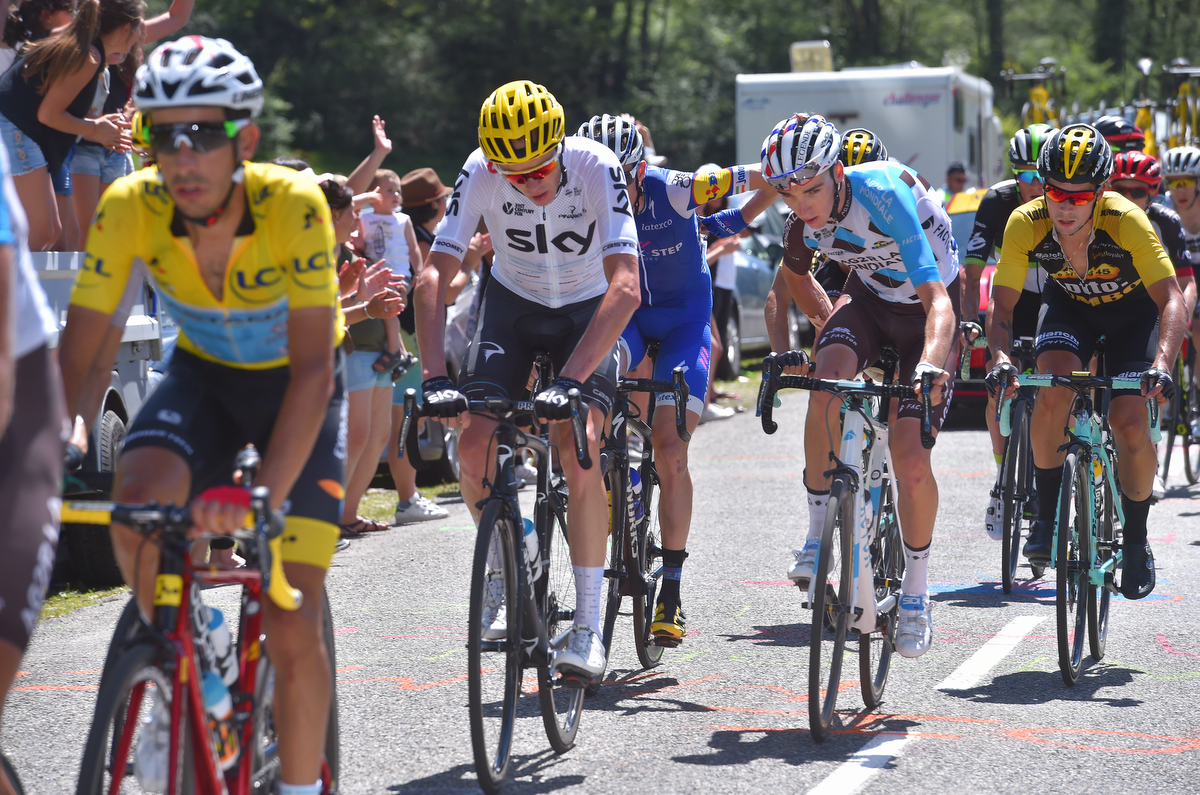
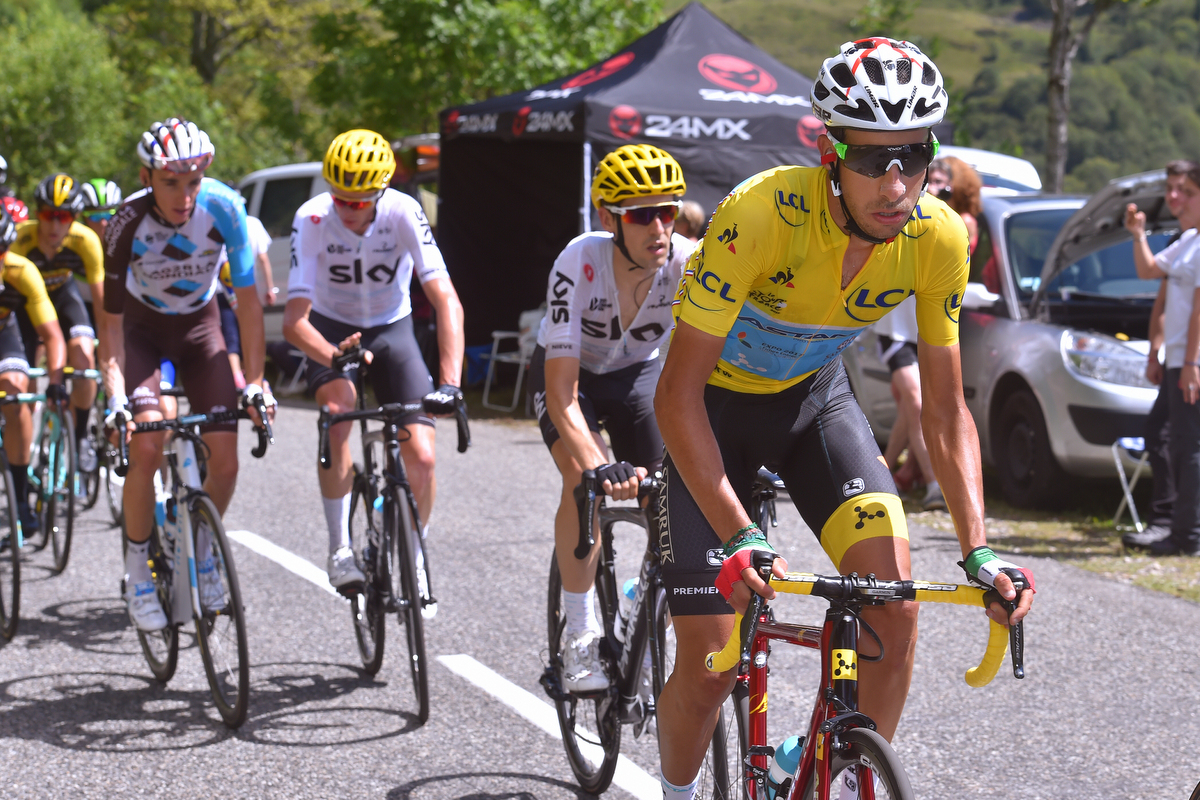
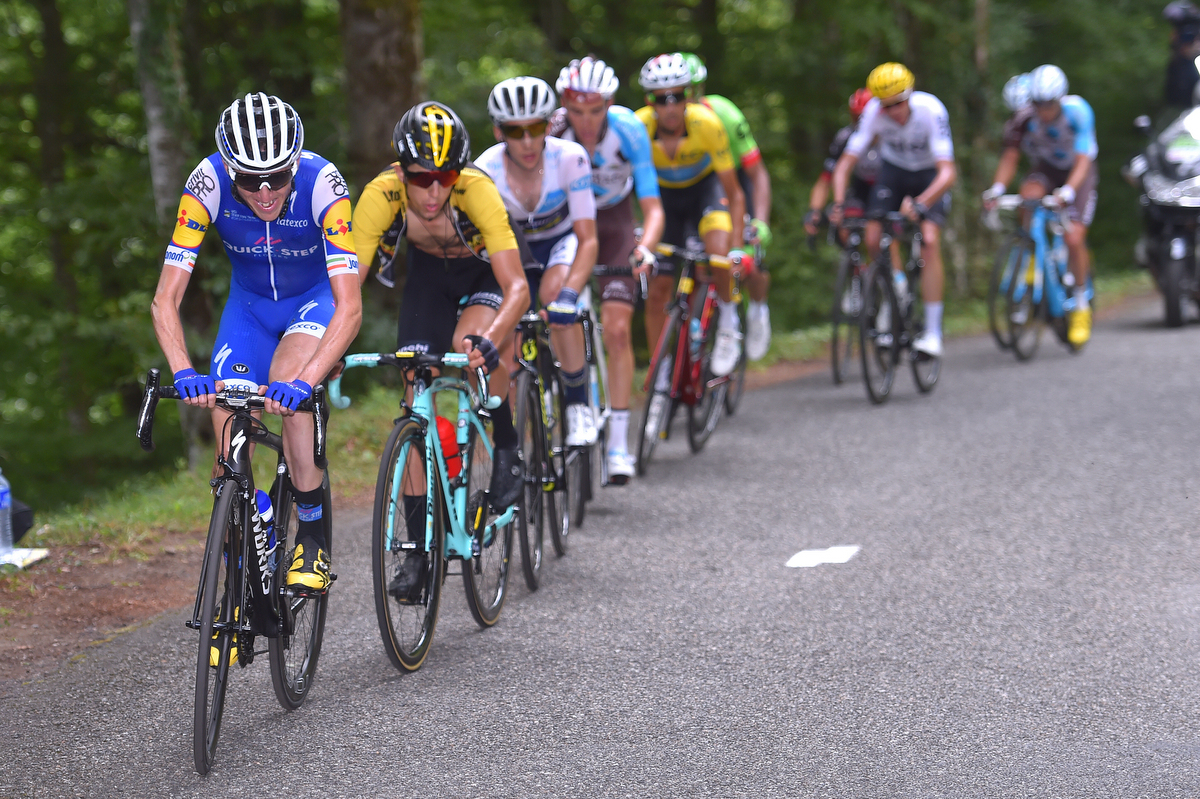
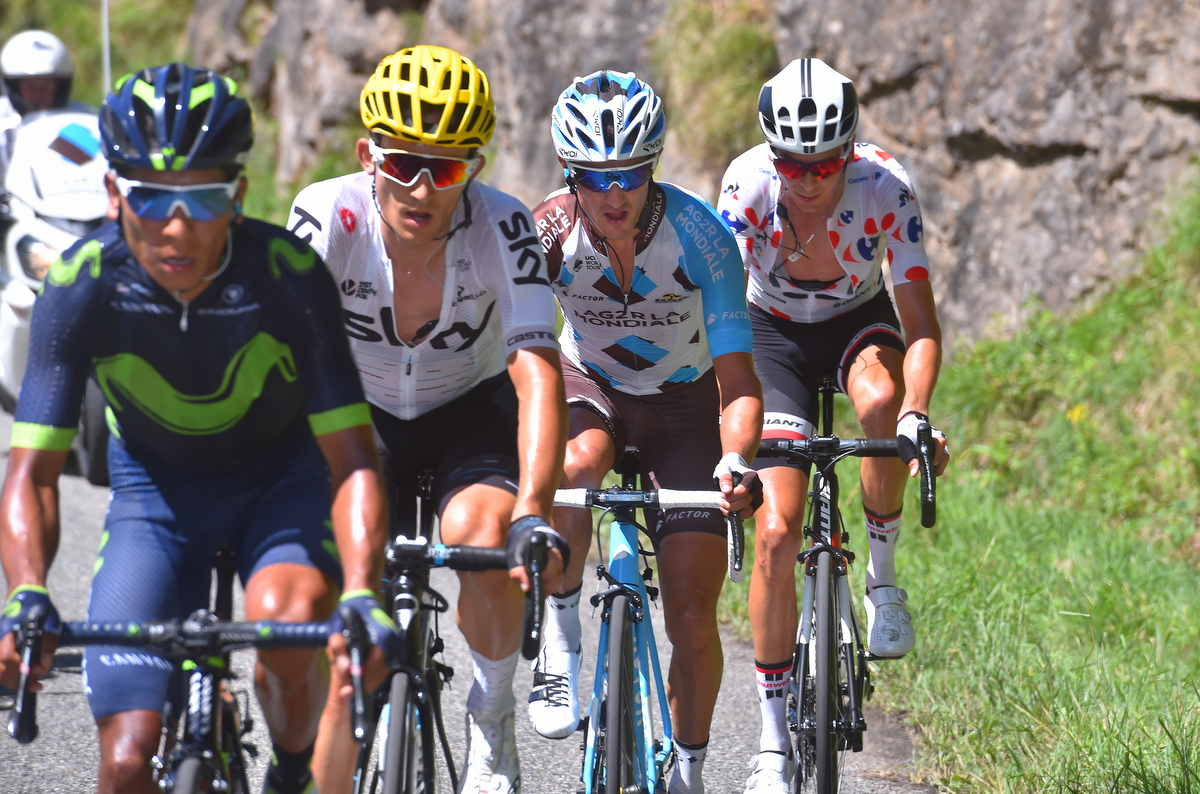
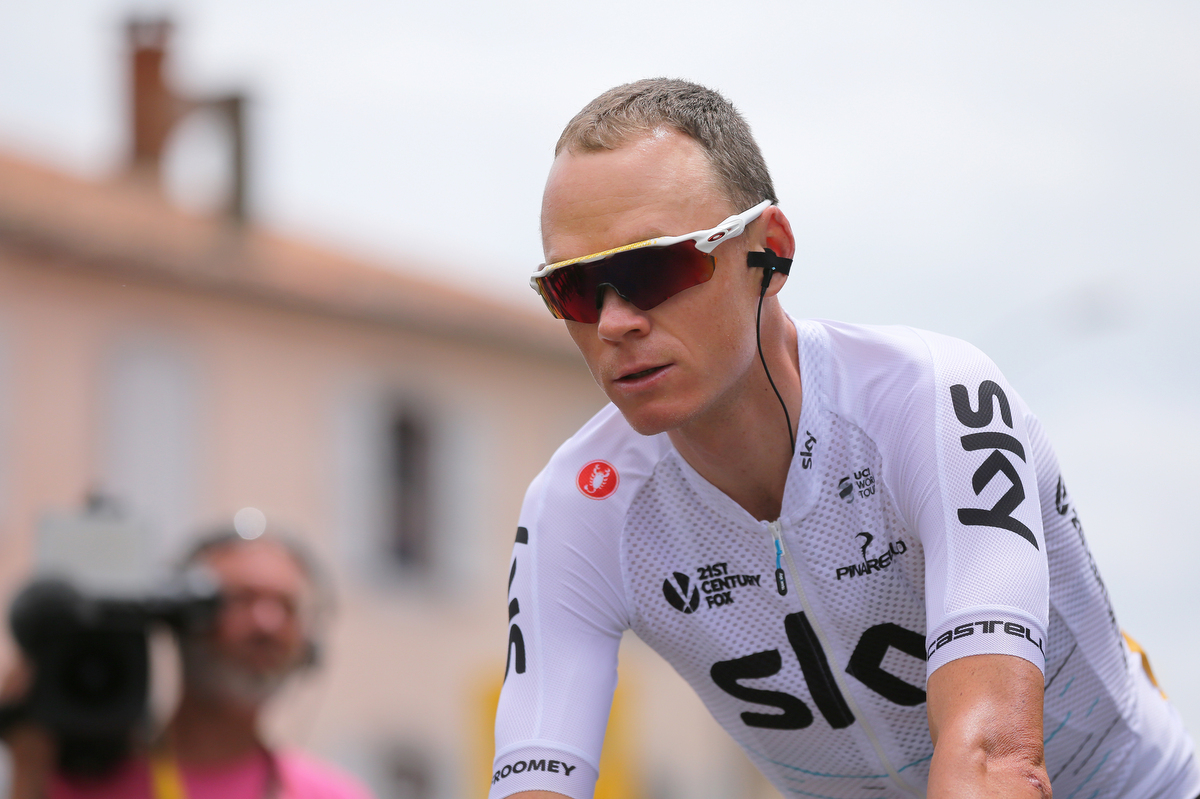
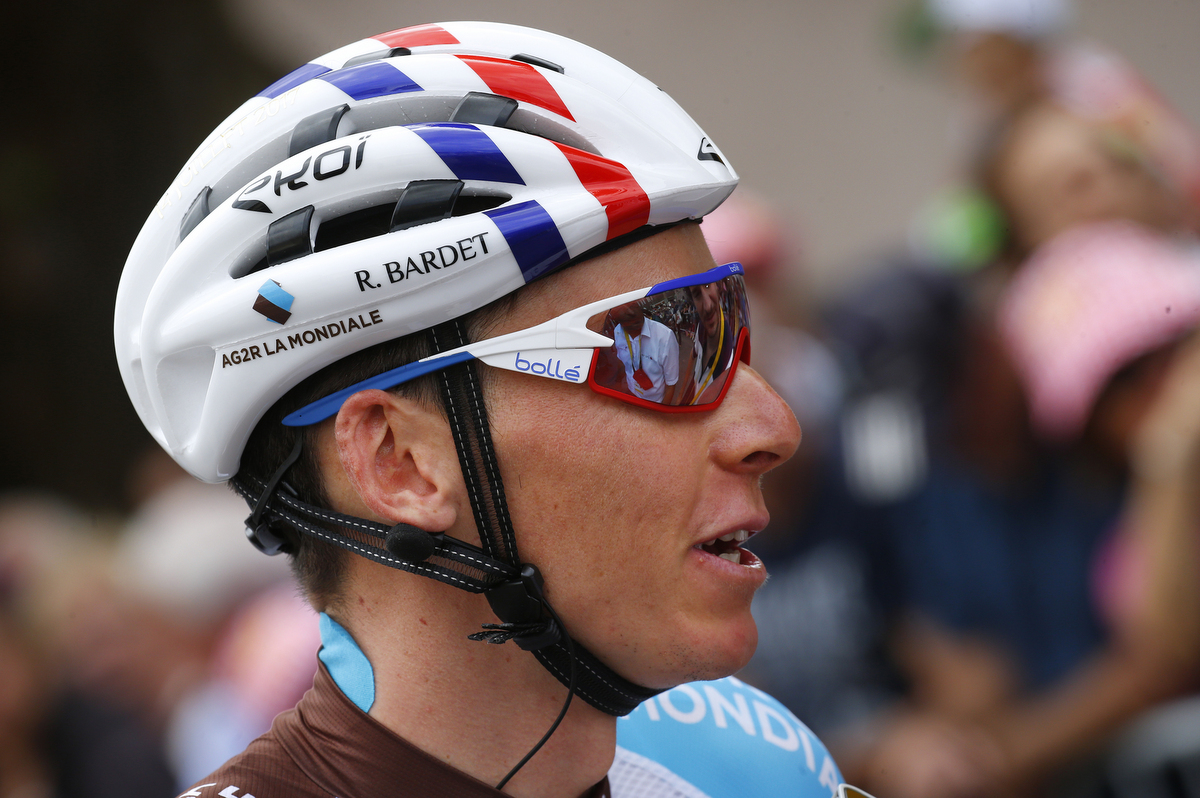
On Friday afternoon, when a journalist friend came across in the Tour de France pressroom to say he'd be heading home soon rather than seeing out the race all the way to Paris, somebody joked "how can you do that when the Tour's the most exciting it's been in 17 years?"
That's not completely accurate by any means - without thinking too hard, you could argue Tours like 2008, 2009, 2011 and the last week of 2015 were all memorably dramatic, too. But there's no denying that as the 2017 Tour reaches its third weekend, the GC battle stands on a knife-edge that we've rarely seen in recent Julys. Nobody has been able to gain a significant advantage, and some top names that were seemingly out for the count have revived their GC status just when it was least expected.
Take Nairo Quintana (Movistar Team). Having drifted off the pace and seemingly surrendered the GC battle on the Peyresourde on Thursday, the Colombian blasted back into contention with a day-long break on Friday that concluded with him losing the stage to Warren Barguil (Team Sunweb), but gaining the bonus of two minutes on the overall leader, Fabio Aru (Astana Pro Team). The result is that Quintana has re-moulded what looked like a disastrous Tour for him back into something that could - just - end up going his way.
Amazingly, given he is now hovering at two minutes and seven seconds back, the former Giro and Vuelta winner is the least of Aru's concerns. Theoretically, six other riders well within that 127 second time margin all could turn the tables far more easily on the Italian.
The prime candidate to do so, for reasons of his proximity to the yellow, team strength, the course route (that time trial next Saturday) and - above all - because of very recent Tour history, is Chris Froome (Team Sky). Thursday's moment of disintegration represented a significant setback for the Briton and many of Friday's numerous testing attacks were as much designed to see how he could react as whether Aru would buckle under the pressure. It didn't happen, suggesting Froome is already bouncing back from Thursday's crisis with his usual formidable tenacity when under pressure. How high the Briton will bounce back, though, remains anyone's guess, and could well define this year's Tour outcome.
Yet Froome's failure to take the Tour by the scruff of the neck as he has done in 2013, 2015 and 2016 (and some might say he could well have done in 2012 given a different set of circumstances) confirms that at best for the Briton, this will, as he has predicted before the race, "be the hardest ever Tour I've ever had to fight." At worst for Froome, Thursday was the earliest symptom of a generational handover of power and fading strength that, at 32, was bound to come sooner or later.
Read more on this article
The latest race content, interviews, features, reviews and expert buying guides, direct to your inbox!
- Quintana's Tour de France hopes rise from the ashes in Foix
- Uran and Cannondale-Drapac serious about their podium ambitions
- Landa: I'd love to win the Tour de France but I know my place
- Contador overcomes Tour de France injuries with long-distance attack
- Froome: Landa is a real threat for Tour de France title
- Aru lets Team Sky attack as he focuses on defending yellow jersey
The big question mark, of course, is whether Froome's form is still on an upward curve as he heads towards the third week, which is when he has aimed to be at his best race condition of all. Although Sky is, once again, the strongest team in the Tour - and that's even without Geraint Thomas - Thursday's wobble made it very obvious that even the longest of line of Sky domestiques cannot wholly protect Froome should he have another jour sans.
"There's no chance to rest up in the next few days from I can see on the map. There's no chance to sleep until Paris," Cannondale-Drapac's Charly Wegelius, whose own Colombian contender, Rigoberto Uran is merely 35 seconds back in fourth place.
"At the moment it's very close and it'll stay like that until some lands a knock out punch. There are some pretty big hills between now and the time trial, so plenty can happen. I think it's going to be a very interesting race right to the end, for everyone and especially for Rigoberto and us."
Contributing to this sense that the Tour has suddenly tapped into a rich vein of exciting uncertainty is the evident weakness of Aru's Astana team. Friday's abandon of Jakob Fuglsang, lying fifth overall on last Monday's rest day, underscored the depleted nature of the support on which Aru is now dependent. The Sardinian-born star has been praised by Froome for his tactical nous and his climbing is arguably the strongest - for now - of any of the GC candidates. But with so many GC riders to handle, the ease in which Quintana surged back into contention, for example, can hardly have been reassuring for the Astana team management. Yet how could they have stopped him?
Virtually all of the GC contenders, with greater or lesser insistence and success, chanced their arm on Friday, Aru's first day in power. Romain Bardet (AG2R La Mondiale), Uran, Chris Froome (Team Sky), Simon Yates (Orica-Scott) and Dan Martin (Quick Step Floors) all went for downhill probes or all-out attacks. Martin laid down a blistering acceleration on the upper slopes of the Mur de Peguere, too, and Froome made two long surges on the same climb that lined out the little group of favourites, even if they didn't crack.
The willingness to test the GC water is there. But nobody within a minute of Aru has been able to shake the stalemate so far, which means we are looking at three riders within 30 seconds of the GC lead, and four at 35 seconds. This is, according to LeTourData, utterly unprecedented in the Tour's history, constituting the smallest GC margins ever after 13 stages.
The rider whose upward trajectory seems to be sharpest and steadiest at the moment is Froome's team-mate Mikel Landa. Taking part in a 70-kilometre breakaway over three Pyrenean cols on Friday was far easier said than done, and when the dust settled on stage 13, Landa had closed the gaps to bring himself back from seventh to fifth, just 1:06 back.
Sky's move with Landa looked like a classic pincer movement, and Froome spoke of repeating a similar strategy in the days to come. But as one Basque journalist told Cyclingnews after the stage, if repeated, that tactic often has a limited shelf-life before it creates more risks than advantages.
The GC tension has lifted somewhat as the race heads away from the Pyrenees and across rolling roads into the Massif Central via Rodez and Le Puy-en-Velay during the weekend. But Wegelius warned against thinking they will be simple transfer stages towards the Alps.
As Miguel Indurain found in the 1995 Tour when he was forced against the ropes by the ONCE squad in the region and nearly lost the race, the narrow, constantly undulating roads of the Massif Centrale are perfect terrain to test a Tour leader and his team. Furthermore, in a Tour that has suddenly turned as unpredictable as this one, it would be very surprising if nobody wished to put Aru and the other GC contenders to the test.
Alasdair Fotheringham has been reporting on cycling since 1991. He has covered every Tour de France since 1992 bar one, as well as numerous other bike races of all shapes and sizes, ranging from the Olympic Games in 2008 to the now sadly defunct Subida a Urkiola hill climb in Spain. As well as working for Cyclingnews, he has also written for The Independent, The Guardian, ProCycling, The Express and Reuters.
